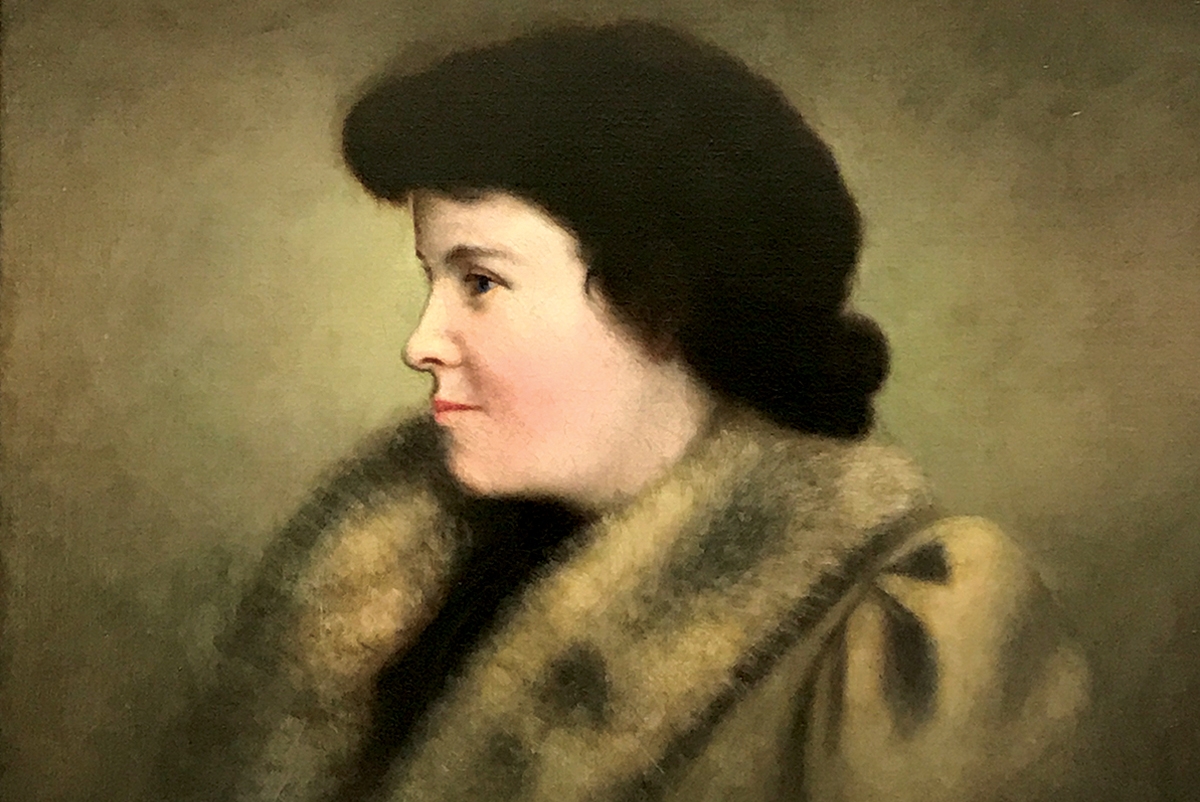Our Heritage
Evabelle Simmons, Pioneer In Education

North Carolina came late to the acceptance of higher education for women. In the 1800s, many, especially men, felt that women need not be educated beyond what it would take to raise a family and run a household. There were few opportunities for women in North Carolina to obtain a college education. Peace College in Raleigh was founded before the Civil War but did not open its doors until after Reconstruction, and for more than a century, would offer two years of college to young women. Raleigh’s Saint Mary’s had long been a school for girls, but did not offer much in the way of a college-level education. Meredith College in Raleigh was founded in 1899, and like Queens College that opened in Charlotte in 1857, it was first a “seminary for girls.” In 1883, Evabelle Simmons, daughter of Wake Forest College professor William Gaston Simmons, enrolled as a student at the then all-male Wake Forest College. The University of North Carolina at Chapel Hill allowed women to enroll as co-ed students in 1897 with Mary McRae enrolling as the state’s public University’s first female student. Mary McRae, like Evabelle Simmons, was the daughter of a faculty member. Her father was dean of the Carolina Law School. McRae was joined by four other women at UNC that same year.
Wake Forest College had a strict policy against the education of women within its halls; however, there were exceptions. Women who lived in town and could attend with a male family member were able to take classes with permission of the trustees. So it was with Evabelle Simmons, the daughter of a Wake Forest professor and the sister of Henry Simmons, a student enrolling at the college in 1883. For four years, Evabelle followed Henry to class, and was even allowed to participate in class recitations and had poetry published in The Student, the college’s literary magazine. Even more astonishing, she was allowed to become a member of the Philomathesian Society, one of two scholarly literary societies that also served as the center of social activity for the campus. There were few differences in their education other than the fact that Evabelle outranked her brother and the majority of her fellow classmates in academic standing. Henry was granted his degree in 1888 after four years without a single question concerning his academic success. However, this was not so for the lady scholar. Even though Evabelle sailed through the course work, she was initially told that she could not be granted a degree. We really do not know if this upset the young woman or not, but it roused anger among her male classmates toward the trustees. Finally, the trustees relented and she was allowed to graduate in 1890 with a resolution by the Wake Forest trustees which read: “on the recommendation of the faculty the degree of Bachelor of Arts is conferred upon Miss Evabelle Simmons.”
For several years after, Evabelle Simmons taught public school in Wake Forest. She later accepted a faculty position at a college in Alabama where she taught until her untimely death in 1898. It was written in her obituary appearing in the April 1898 issue of The Student, that “she went forth to teach, possessed not only with an education of the broadest and most liberal type, but also possessed with the genuine teacher’s heart – kind, simple, pure, and sympathetic.”
Evabelle Simmons was a pioneer in North Carolina higher education. Despite her being granted a degree by the Wake Forest trustees, it would be nearly a half century before women would be a regular part of the student body.
A very special thank you goes to Amy Pierce, who has now retired from “Our Heritage.” Amy has been a part of the CIRCA family since the very first issue 18 years ago. We can't thank her enough for sharing her knowledge and love of Wake Forest over the years!
Ed Morris
Executive director of the Wake Forest Historical Museum & Wake Forest College Birthplace.

